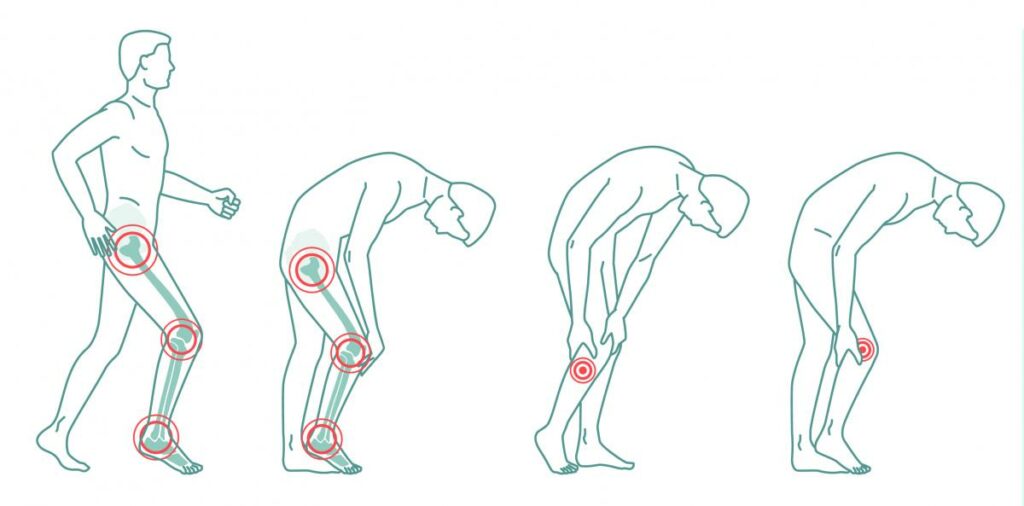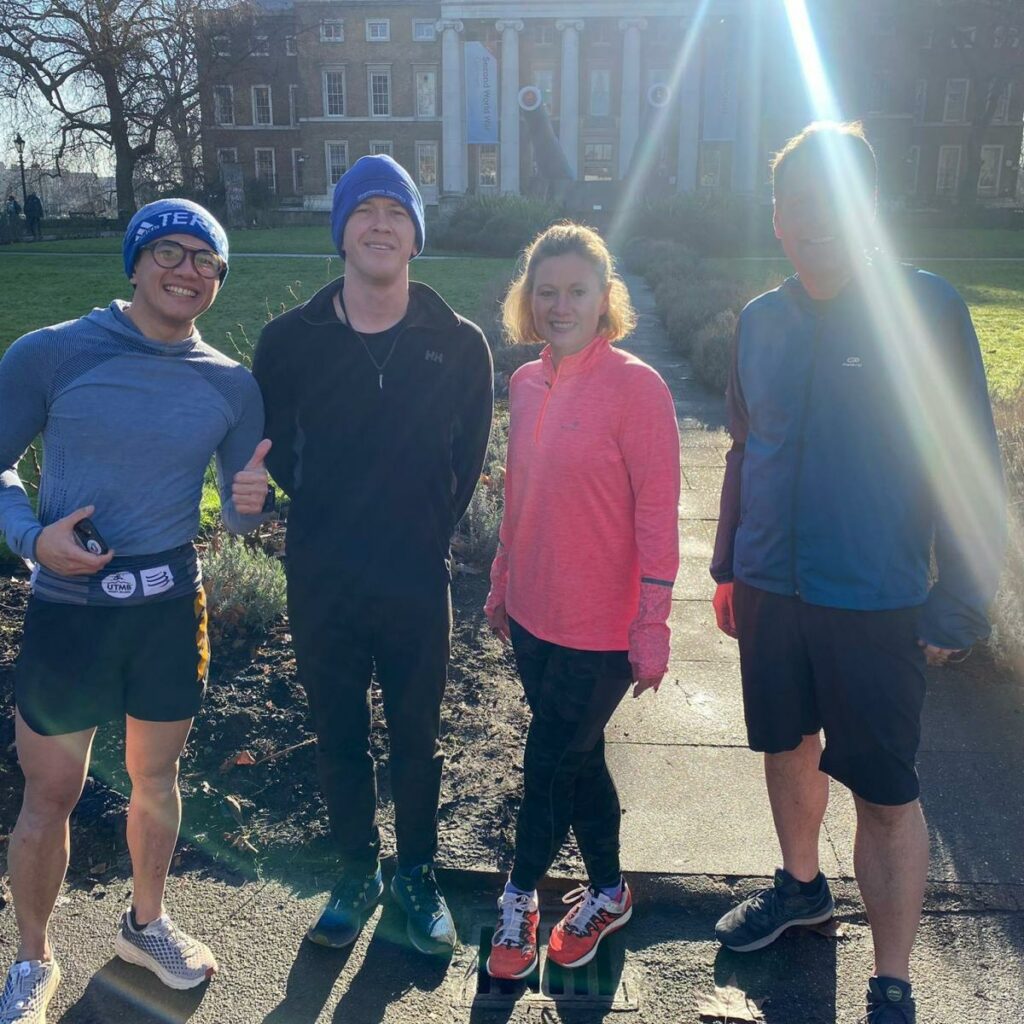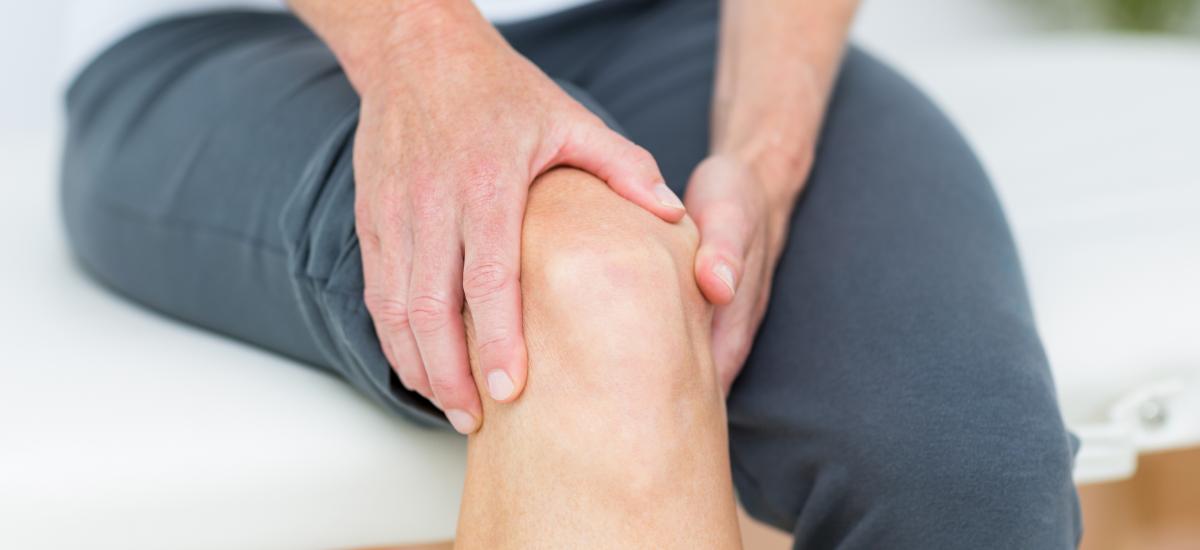As osteopaths we often see patients presenting with knee pain. So, what could we all do to decrease the likelihood of our knees “complaining” in the first place?
Firstly, let’s briefly summarise what our knees do.
Their main function is to bend and extend our leg but they also allow for some very important rotation to happen.
Due to their mid-way positioning between the hips above and the feet below, knee health is directly related to a healthy functioning of these two areas. The knees deal with forces transmitted down from the hips and up from the ankles/feet.
The knee joint also has strong supporting muscles and ligaments that help in the lower limb being able to successfully cope with all the demands for stability and mobility placed on them.

Healthy knee function is reliant on these other joints and areas of the body working well. This means that symptoms in the knee may be due to local knee issues or due to changes elsewhere in the body that are impacting on the knee.
This is why we should also look after the strength, mobility and stability of the surrounding joints so that this provides good support to the functioning of the knee.
Keep APPROPRIATELY active
There is a wealth of research and guidelines that highlight the importance of keeping strong and active, and how this is one of the best ways to help with reducing existing knee pain or to prevent it all together.
Don’t believe the best thing for your painful knees is to avoid all movement!
You may feel concerned about what movements you are able to do and how this will feel, so please do seek advice from your osteopath or other healthcare practitioner about this.
Here are some tips to get you started:
- Think about what you are able to do, whatever this may be. From here you can then build, albeit slowly and gradually and within the boundaries of what is workable for you.
- What activities do you enjoy? You are much more likely to continue with activities you enjoy or find rewarding. Make sure you introduce activities gradually and progressively, and if you are unsure or feel uncomfortable with something, then your osteopath or other healthcare practitioner will be able to help with this.
- Could you combine your activities with something else you enjoy, such as a social get together with friends? You will be able to support one another and again, you are more likely to stick with it.
- Be kind to yourself. If you don’t manage as much some days, then that is ok. Better to focus on what you have managed to achieve, patterns of activity and improvements. Setting goals can be helpful for some people; other people can find this difficult if there are not able to consistently achieve their goals, so think what is best for you and talk to your osteopath or other healthcare practitioner for more advice.
- There will always be an activity to fit our health needs and lifestyles, which are ever changing, we just need to keep searching and keep trying different things!
Some of Team UCO meeting for a Wednesday lunchtime walk/run.


